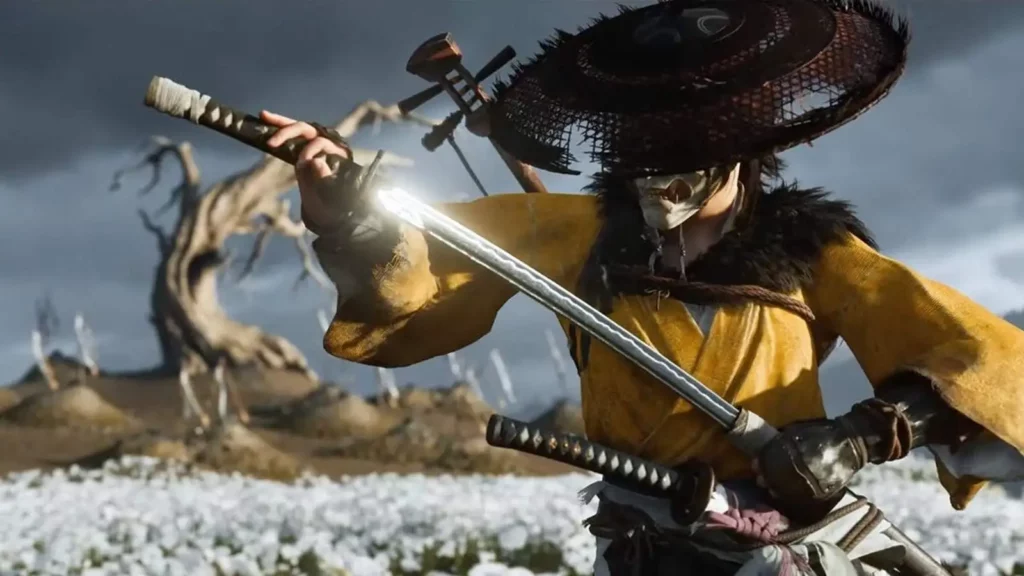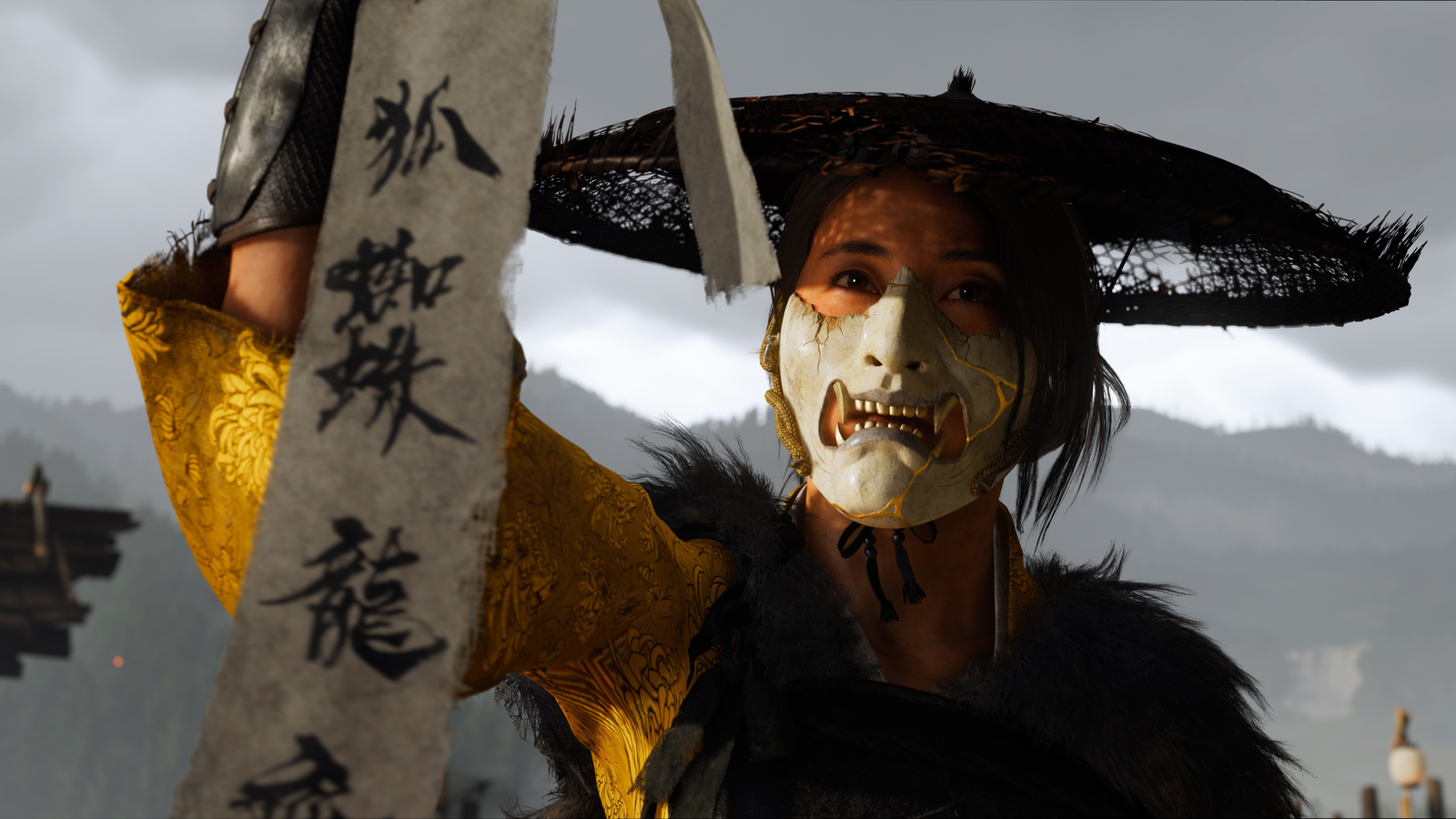There are many great stories that start with loss, not victory. The Ghost of Yōtei opens not in triumph, but in silence. Amidst the remnants of a burnt village, one snow-covered warrior appears to walk the remnants of our past. It isn’t a hero’s journey but rather a pilgrimage of grief.
The game, set on the remote northern island of Ezo, replaces Tsushima’s warm golden colours with pale blue skies and frozen rivers. The contrast is remarkable; this world bears its weight, wind and loneliness.
Right from the start, you know that Ghost of Yōtei isn’t just another action game. It is a reflection of life remaining after everything is gone.
Atsu, the Broken Blade
The story follows Atsu, the daughter of a samurai family who is now a wandering ronin haunted by disdain. With her home gone and her clan erased, she does not seek glory but answers. The Yōtei Six, her greatest enemies, lay claims to the north and treat its inhabitants with cruelty. Each of their boss encounters feels intensely personal, like it’s history that has unfolded before.
Atsu isn’t perfect. Her choices are troubling, she doesn’t always trust herself and struggles with obsession and justice. But that humanity makes her story hit harder. You participate in battles not due to game requirements but for her and her life.
The game gives her room to breathe. When she’s not fighting, she spends her time painting landscapes, visiting shrines, or listening to villagers sing songs. In this way, the actual violence has a deeper resonance—as in the very stillness of air before a coming storm.
The Art of Battle
Ghost of Yōtei embodies the spirit of Tsushima, however, its combat is more considered and restrained. Every strike is slower, heavier, and more dangerous. Blocking means survival; timing means victory.
Atsu is able to master several different fighting styles, from precision swordplay to chain trickery. None feel overpowered, but each rewards discipline. The game compels you to analyze your opponents: their rhythm, anger, and uncertainties.

Boss duels are the highlight. They are intimate and made under torch light shooting often. One wrong step, one failed parry, and it’s over. It’s just a few more attacks, then bang — that perfect counter lands and all the joy of combat comes rushing back with a rush that no cutscene can ever match.
The World Beyond the Blade
While Tsushima celebrates spaciousness, Yōtei celebrates proximity. Its world isn’t enormous, but it’s rich with presence. You go on adventures not to check off a list but to discover stories.
Every ruin, shrine, and battlefield has something to say – about the people that inhabited these spaces, the wars that destroyed them and the ghosts that still haunt. When I walk through the snow, sometimes letters are frozen there; sometimes, I hear voices. The world feels alive in quiet ways.
There are gorgeous images of frozen waterfalls glowing beneath the moonlight, red maple leaves buried under the snow, and shrines engulfed in mist. The audio design deepens that immersion — wind moans through the valleys, steel rings like a prayer, and distant chants echo through the night.
A Story of Shadows and Spirit
While the Ghost of Tsushima examines honour, the Ghost of Yōtei will deal with consequence. It questions what honour really costs, and if we can ever find peace in revenge.
The narrative avoids easy endings. Even as Atsu finds her enemies, victory feels uncertain. You don’t walk away clean; you walk away changed. When the last battle is over, victory is not what you feel. It is a sense of release.
Side missions reinforce that sense of reflection. A farmer wracked with guilt, a shrine keeper riddled with corruption, a mercenary who no longer cares for his cause – Each reflects different aspects of Atsu’s plight. They’re not filler; they’re bits of humanity scattered in the snow.
Verdict: A Samurai’s Soul in Winter
The Ghost of Yōtei doesn’t chase spectacle. It finds beauty in restraint. Every duel, every gust, every note of the shamisen finds meaning in a greater beating of the system.
For gamers in North Africa and the Middle East, the themes of honour, family and redemption are common. Yōtei hits these marks with surprising accuracy. The world tries to make you fall on your knees, in the struggle, you find peace, remember who you were before the war.
It’s not a game you rush. Even now, it’s a game you live through, heartbeat by heartbeat, duel by duel, snowstorm by snowstorm.
